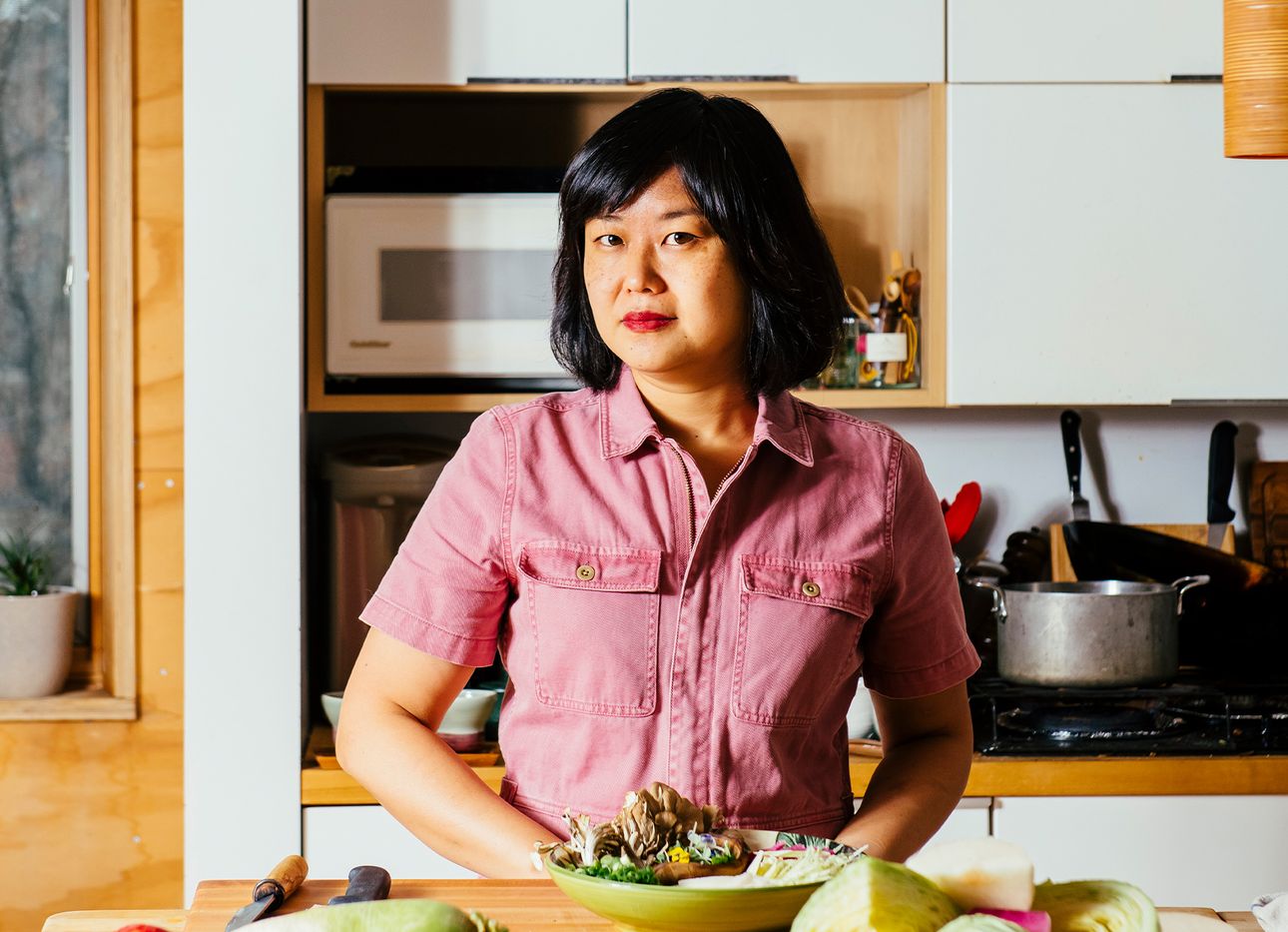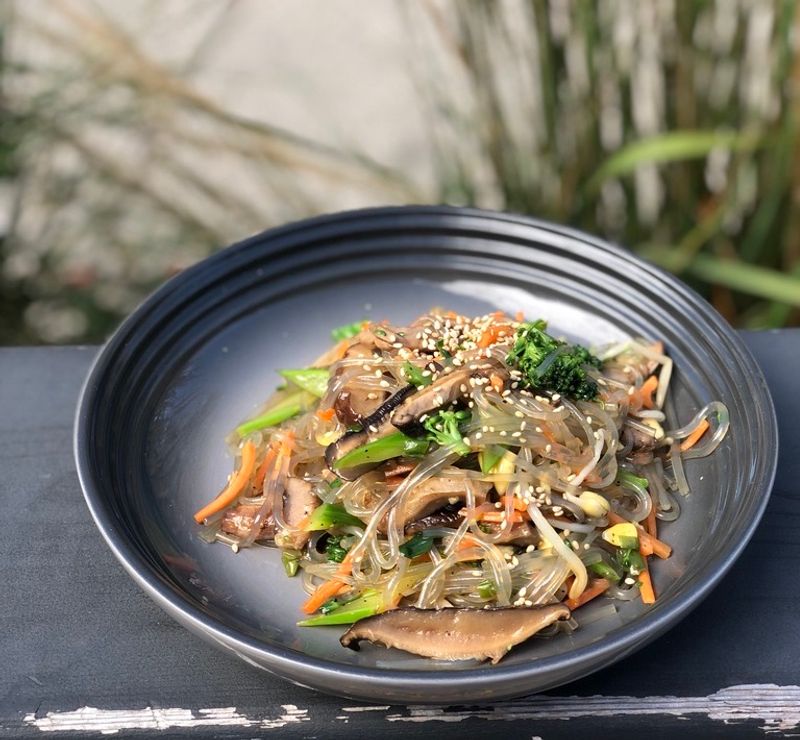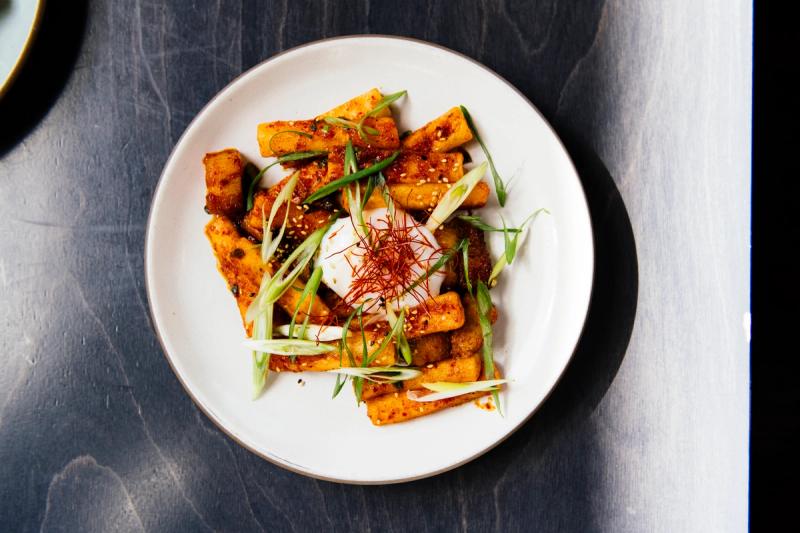
An Ann Arbor Restaurant Fuses Korean Tradition with Modern-Day Michigan Ingredients
When Ji Hye Kim first moved to Ann Arbor, Michigan, she didn’t find much that resembled the homemade Korean cooking she’d grown up with. In 2016, in an effort to fill this gap, she opened Miss Kim, where her aim is to fuse traditional Korean recipes—like those her mother would cook—with the distinct produce of Michigan and the Midwest. But Kim, who was named one of Food & Wine’s best new chefs of 2021, didn’t always see a culinary career in her future.
Raised for 13 years in Seoul before emigrating to New Jersey, Kim landed in Ann Arbor as an undergraduate at the University of Michigan studying political science and economics. Graduating shortly after the 9/11 attacks on the World Trade Center in 2001, she took a job at a hospital to renew her visa in a struggling job market. After working for a few years later, marriage brought her back to Michigan and Kim found a job in the specialty foods department at Zingerman's Delicatessen, where she fell in love with the work that went into preparing each item. She was struck by the level of detail and care that went into each batch of balsamic vinegar, each block of cheese, each brew of coffee. It was then that she began dreaming about opening her own restaurant, a place where she could not only supply homemade Korean dishes, but also bring that same attentiveness and knowledge to, say, a bottle of soy sauce.
Here, Kim describes how she celebrates Chuseok, the mid-autumn festival being celebrated this weekend in South Korea; shares her favorite dish; and delves into her approach to blending Korean tradition with modern-day Michigan ingredients.
“When I started getting into cooking, I thought about what I could do to expand Korean food in Ann Arbor. I started wondering, what does homemade Korean cooking look like here? It’s not like I can bring in fresh produce from Korea, and I can’t imagine practical Korean housewives, grandmothers, and mothers paying extra money to make their meals as Korean as possible when they can go to a farmer’s market and get in-season, better quality, and cheaper produce. All those thoughts went into the building of my restaurant, and they continue to evolve as we learn more. To some people, it might not look like familiar Korean food. But to me, it’s deeply Korean, while remaining true to my new home.
When I first came to the United States, I went from celebrating large festivals with my extended family to it just being me, my mom, and my brother. We still celebrated Chuseok, but in a smaller way. There was no hoopla coming from our neighbors, or our friends, or our school. It became a lonely holiday, but we made the best of it. The traditional feast involves way too many different kinds of food for one person to execute, so my mom went with a more basic version: taro and beef soup, premade rice cakes from a Korean grocery store, japchae, ssamjang, and my favorite, neobiani, which is like a Korean barbecue steak.

Before the pandemic, I would host special dinners, like a six-course all-you-can-eat buffet, with huge platters of Chuseok food. But now, my family is in New Jersey and I’m in Michigan, so I celebrate by putting a Chuseok special on the menu [at Miss Kim].
The spirit of Chuseok is a celebration of harvest. Michigan has one of the most amazing farming communities, brimming with so many colors of produce. This year, Chuseok falls on the first week of September, and that’s the best time for Michigan produce—there’s so much good stuff. Tomato doesn’t always get featured in Chuseok recipes, but I love buying green tomatoes and slicing it and using that for jeon [a pan-fried fritter] instead of zucchini, which is more typical. I love buying local mushrooms and using that in japchae instead of beef.
The dish that my mom cooked so often—neobiani [thinly sliced, marinated, and grilled beef]—I used to just assume that all Koreans knew it. But when I started studying regional foods, I learned that this dish is specific to Seoul. And if Korea has well-developed regional cooking, then why not regional cooking in Michigan? If I am celebrating this holiday, which is deeply agricultural and rooted in the abundance of harvest, it wouldn’t make any sense if I didn’t use what’s been harvested by Michigan farmers.
The idea is that Korean food—or any food—is more than just a list of ingredients. You have to understand the spirit and the philosophy behind it. Chuseok is an agricultural holiday: It’s a celebration of harvest. So I try to honor that within my tiny community, and my friends, and the restaurant.”
